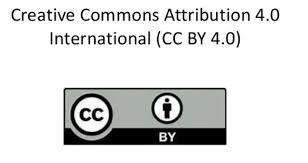Residual effect of oxytetracycline medicated diet on shelf life of mrigal carp (Cirrhinus cirrhosus) stored in ice under laboratory condition
DOI:
https://doi.org/10.47440/JAFE.2021.2118Keywords:
Antibiotic, chilled storage, organoleptic, shelf life, mrigal carpAbstract
Among the six common classes of antimicrobials approved for aquaculture by World Health Organization (WHO), the use of oxytetracycline (OTC) is common in the aquaculture of Bangladesh. Since OTC hampers the growth and reproduction of fish microbial communities including the commensal and pathogenic flora, efforts were made to investigate the residual effect of OTC via medicated feed on the shelf life of apparently healthy mrigal carp (Cirrhinus cirrhosus) during ice storage. A group of live fish (average weight:18 ± 0.05 g) were fed OTC supplemented diet (2g OTC /kg diet) twice a day for 21 days and compared to another group fed with basal diet (control). After a brief withdrawal period (14 days), fish were killed by ikejime fish-slaughtering method and kept in separate ice boxes containing 1:1 ice to fish ratio for determining their shelf life using organoleptic, biochemical and bacteriological aspects of fish. Organoleptically, control fish were found to be acceptable up to 11 days whereas fish of treated group were found acceptable up to 15 days, showing significant rise in shelf life for OTC-treated fish. Proximate analysis showed a slight increase in moisture and a gradual decrease in protein and ash contents that were statistically insignificant (p>0.05) between control and OTC-treated group. The decline in lipid content was, however, significantly different between the two groups (p<0.05). Muscle pH increased sharply other than control fish as well as total volatile based nitrogen (TVB-N), peroxide value (PV) increased rapidly. The aerobic plate count (APC) was significantly higher for control fish than OTC-treated fish during storage time. According to the parameters assessed, the OTC-treated fishes were found to be delayed spoilage along with a prolonged shelf life in ice storage condition.






 Publisher:
Publisher: 